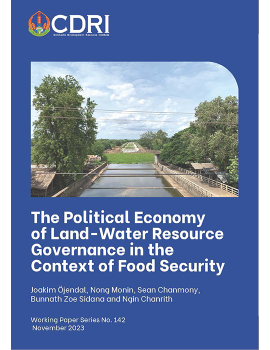
The Political Economy of Land-Water Resource Governance in the Context of Food Security in Cambodia
Water is central for a variety of livelihoods, development, economic growth, and food production. It is also very important in the large deltas of South and Southeast Asia. Yet, water is turning into a scare resource and global climate change is making its availability more unpredictable. Commercial interests and infrastructure development are also...
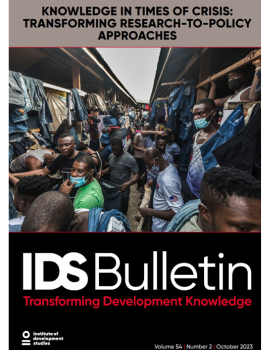
Lessons Learned from Mobilising Research for Impact During the Covid-19 Pandemic
During the Covid-19 pandemic, research organisations have strived to be resilient. This means navigating through the technical, operational, and political challenges to achieving successful research implementation. Particularly for local policy research thinktanks, the pandemic has made these challenges even more difficult to address. From the expe...
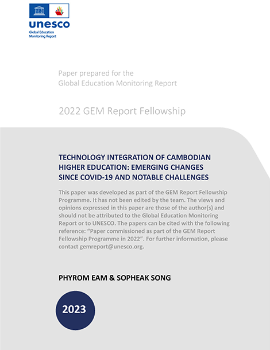
Technology integration of Cambodian higher education: emerging changes since COVID-19 and notable challenges
The second decade of the 21st century marks the time the Royal Government of Cambodia (RGC) officially directs the nation’s public sector, economy, and society to accelerate technology adoption and digital transformation. This present study aims to observe developments of such direction in Cambodian higher education (HE) sub-sector before and in re...
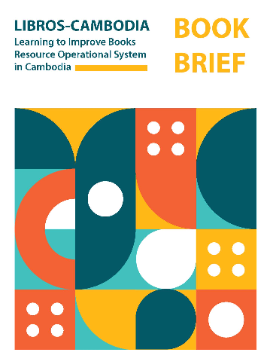
Learning to Improve Book Resource Operational Systems (LIBROS)-Cambodia Book Brief
This Book Brief is a compilation of findings from studies in the LIBROS-Cambodia Project. It provides overall pictures of the primary-level book supply chain situation in Cambodia and Track and Trace (TnT) system, which is now the Core Textbook Supply Management System in Cambodia.
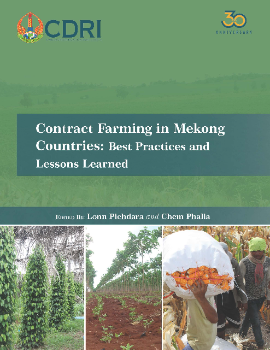
Contract Farming in Mekong Countries: Best Practices and Lessons Learned
This flagship publication is the result of a regional two-year research project entitled: “Enhancing Research and Dialogue on Contract Farming in the Mekong-Lancang Countries”. It represents a close collaboration between CDRI and project partners - the China Agricultural University (CAU), Kasetsart University (Thailand), and the Institute of Policy...
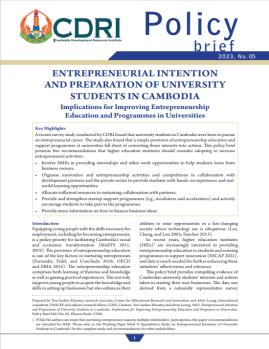
Entrepreneurial Intention and Preparation of University Students in Cambodia: Implications for Improving Entrepreneurship Education and Programmes in...
A recent survey study conducted by CDRI found that university students in Cambodia were keen to pursue an entrepreneurial career. The study also found that a simple provision of entrepreneurship education and support programmes at universities fell short of converting those interests into actions. This policy brief presents five recommendations th...
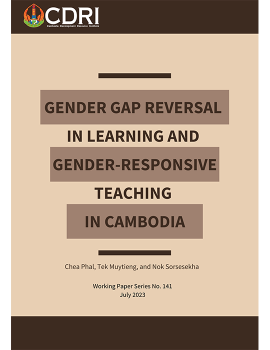
Gender Gap Reversal in Learning and Gender-Responsive Teaching in Cambodia
In the past two decades, Cambodia has been committed to the global agenda of ensuring that all children from all walks of life have access to education and quality learning opportunities. The focus was not only on access to education but also on gender parity and learning quality. Three years after the adoption of the Dakar Framework for Action in...
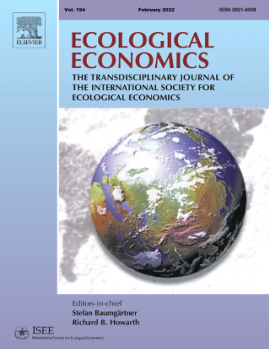
Water scarcity and support for costly institutions in public goods: Experimental evidence from Cambodia
Voluntary contributions to public goods are vulnerable to free riding. A potential solution is the implementation of a costly institutional arrangement that deters free riding behavior. In this paper, we analyze to what extent resource users are willing to bear those costs and vote in favor of costly institutions. We carried out lab-in-the-field ex...
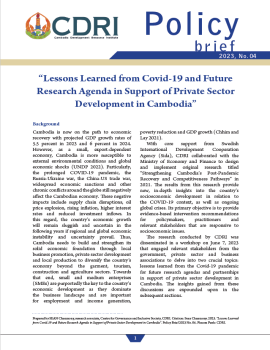
Lesson Learned from Covid-19 and Future Research Agenda in Support of Private Sector Development in Cambodia
Cambodia is now on the path to economic recovery with projected GDP growth rates of 5.5 percent in 2023 and 6 percent in 2024. However, as a small, export-dependent economy, Cambodia is more susceptible to external environmental conditions and global economic shocks (UNDP 2022). Particularly, the prolonged COVID-19 pandemic, the Russia-Ukraine war,...
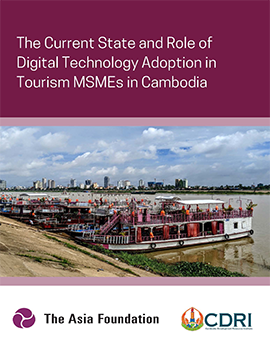
The Current State and Role of Digital Technology Adoption in Tourism MSMEs in Cambodia
The majority of businesses in Cambodia are micro, small, and medium-sized enterprises (MSMEs), which account for 99.9 percent of all businesses and a sizable portion of employment in the private sector. The adoption of digital technology (DT) among Cambodian MSMEs is still uneven and relatively low, despite the fact that it has become an essenti...
